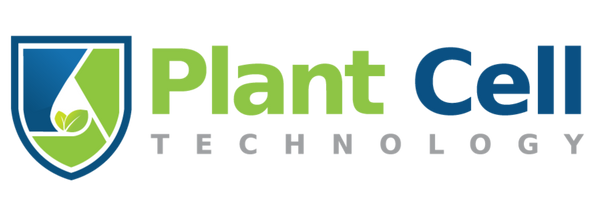Table of Contents
Who is PCT?
Tissue culture technology is revolutionizing agriculture and horticulture worldwide. Plant scientists are working towards inventing breakthrough technologies (like tissue culture) and solutions to several challenges all over the world.
Tissue culture technology has the capability to solve issues like hunger problems, agricultural challenges, vanishing plant species, and secondary metabolite productions. Plant Cell Technology (PCT) offers practical assistance to culturists, enthusiasts, and hobbyists worldwide by providing innovative and affordable solutions to tissue culture problems.
Within PCT, size and experience of our amazing customers don’t matter at all. We treat and serve all our customers equally and outstandingly. This article summarizes all of PCT's top curated products and services that are offered to tissue culture customers.

History of PCT
Plant Cell Technology has the sole purpose of enhancing the technological advancements in the tissue culture areas. The company, founded in 1995, is led by Yoni Kalin. The company has an interesting history of starting the company with a fun and interactive toy called plant toy. And, years after collaborating with Dr. Assaf Guri, PCT started developing affordable and creative solutions for tissue culturists.
Related: PCT Starter Kit
PCT Products for Tissue Culture
Plant Cell Technology offers a range of products to facilitate your tissue culture processes at every stage. It includes PPM (plant preservative mixture—a trademark product), MS Media, Agar, Gellan gum, different culture vessels, and protective high-quality lab masks.
1. Plant Preservative Mixture
Contamination is one of the major problems in the tissue culture lab, which can lead to loss of your efforts, money, and time. How to fight it?
PPM is a trademark product of PCT that is an ultimate solution for all contamination problems of your tissue culture lab, used worldwide. It’s more effective than using antibiotics in your culture. Its five extensive advantages include:
- Protect plants from all kinds of contamination problems.
- Maintain the genetic makeup of plants.
- No negative impact on plant growth.
- Effective even in the smallest volume (1-2 ml/L of media).
- Autoclavable.
2. MS Media
MS media (Murashige & Skoog) is one of the most commonly used culture media. It consists of several micronutrients and macronutrients in the specific amount required for the proper growth and development of plants.
3. Agar
What holds plant roots in natural conditions? Soil! But, what if plants are transferred to the lab? They require solidifying agents like agar and gelatin to support their growth. The percentage of agar prepared depends on the type of tissue culture technique you are working with. For example, callus culture or organogenesis requires solid culture media, however, liquid cultures are prepared for suspension cultures.
4. Gellan Gum
Gallan gums are also a solidifying agent like agar. They are more transparent than the agar and are popular in labs where people are studying the growth and development of roots. Further, gellan gums have less phenolic impurity compared to agar. And, only 0.2% gellan gum is added to the media while preparation.
5. Culture Vessels
The perfect size and quality of the culture vessel are a must in tissue culture processes. It provides and maintains a suitable surrounding for cultured explants that facilitate their growth and development.
PCT provides you world-class culture vessels with a gas exchange nozzle, perfect to maintain humidity and atmosphere for explants. You can get here two types of culture vessels— glass culture vessels and GA-7 vessels —fitting your needs.
6. Protective Lab Masks
You would want to do everything you can to avoid contamination from your cultures. So, why leave behind your masks for the safety of your cultures!
PCT has designed high-quality, soft, breathable, and comfortable masks only considering your needs. Check out your mask here now!
7. Starter Kit
The starter kit is a whole perfect package for tissue culture beginners! With this kit, you don’t have to worry about buying individual products and fear missing something. You get everything in one place, which includes PPM, MS media, Agar, and culture vessels.
PCT Consultation Services
We mean it when we say we are your partners! PCT brings you solutions for all lab challenges. If you are someone who needs help with setting up the lab or needs an expert opinion for the culture processes we are here for you!
What does PCT provide:
-
One-on-One Phone Consultation: You can ask any questions related to topics licensing, equipment, strain & grow optimization, harvest & distribution, Residential versus Commercial growing challenges, and others.
-
On-Site Tissue Culture Processes: This program is curated to give you hands-on experience on tissue culture processes. It’s contains three days (21 hours total) on-site training, which include:
- Day one is for basic training and creating tissue culture media.
- On day two we will run media as well as take plant cuttings and node stem cultures.
- Day three is for recapping everything you learned and ensuring that your tissue culture is operational and ready to go!
- On-site tissue culture training also includes 30-day and 90-day follow-ups with Yoni and the PCT team.
Check out this case study of Riviera Creek, which shares its experience with PCT consulting services.
How Can You Reach PCT?
Apart from the mentioned products and services, PCT is developing some more tissue culture products and services to enhance your productivity in the work. But, these are surprises! Subscribe to PCT now to be the first person to get an update on our latest offerings!
Reach out to us if you have any queries regarding products and services.
Happy Culturing!!

Source: Giphy














Join the conversation
Your email address will not be published. Required fields are marked